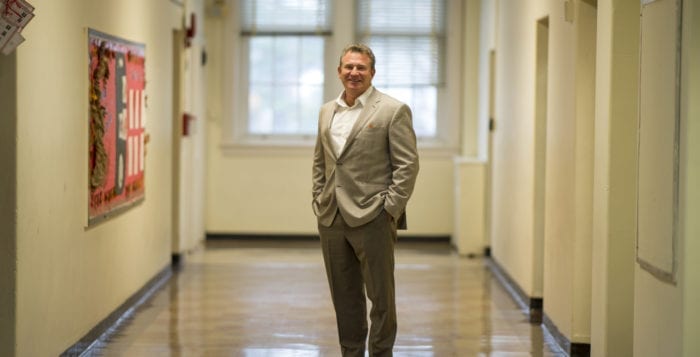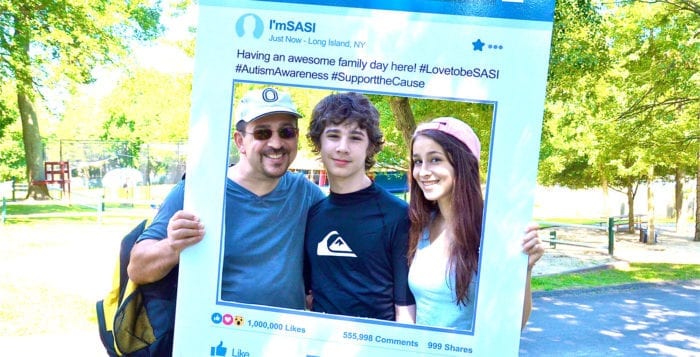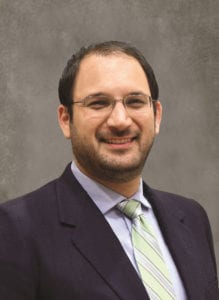It takes a special person to take care of a child with special needs. Huntington resident Kevin Gersh has proven all it takes is a few innovative ideas and a big heart.
Gersh, founder of Gersh Academy in Huntington, created a series of schools and programs geared toward helping children with autism and special needs. But it’s been his drive to do more philanthropic actions that give back to the community that has made others take notice.
“Kevin Gersh is an innovator in the special needs community,” said Stephanie Gotard, program director of Leadership Huntington, which fosters development of community leaders. “He has dedicated his life to making a difference in the lives of children.”
Gersh founded West Hills Montessori School of Huntington in 1991, where working with one child with special needs made him realize that the method of teaching needed to change. As a result, he started Gersh Academy in 1999 as an education program for children ages 5 to 21 on the autism spectrum.
Over the years, Gersh has expanded his organization to create 11 programs spanning from Long Island to Puerto Rico, for typical children in addition to those with special needs.
“I love helping kids. When someone asks me can you help a child, I say ‘yes.’ I don’t hesitate. It’s what gets me going.”
— Kevin Gersh
“It’s what I do for a living, that’s who I am,” he said. “I love helping kids. When someone asks me can you help a child, I say ‘yes.’ I don’t hesitate. It’s what gets me going.”
Others in the Huntington community said they now look to Gersh for advice in meeting the needs of children with autism. Cold Spring Harbor resident Bob Fonti said when he had a friend who was unsure where to get help for his child with special needs, Gersh’s door was open, and he was more than willing to pick up the phone and make a call.
“He is always willing to advise, advocate and provide hope for special needs parents,” Gotard said.
In addition to his work for special needs children, Gersh has been noted by others for giving back to nonprofits and local communities. In 2015, Gersh Academy students raised funds for the Caroline Wambui Mungai Foundation, an organization whose mission is improving the lives of orphaned and abandoned children throughout Africa. The following year, the Gersh Organization donated money raised for Sunrise Day Camp, a specialized camp for children with cancer and their siblings.
More recently, Gersh donated hundreds of school uniforms to students in Wyandanch school district. He has also created an event, which distributed donated suits to help students heading into college and with job interviews. He recalled fondly watching one football player try on a jacket.
“You should have seen the smile on his face when he looked in the mirror dressed in a $3,000 full-length cashmere coat,” Gersh said. “He didn’t take it off the whole night. That to me, is everything.”
“[Kevin Gersh] is always willing to advise, advocate and provide hope for special needs parents.”
— Stephanie Gotard
This holiday season, Gersh has joined with a friend, Kevin Donnelly of Lido Beach, in an effort to ship 10,000 toys to Puerto Rico for children displaced by Hurricane Maria in time for Three Kings Day, Jan. 6.
“They are living in shelters, the least we can do is give them a Christmas,” Gersh said.
He has asked the 75 employees of Gersh Academy in Puerto Rico to help sort the toys for distribution. The U.S. Marines with Toys for Tots and the toy company, Hasbro, have pitched in and joined the effort.
But he’s already looking forward to his next event, having Six Flags Great Adventure in New Jersey hold a day in May 2018 specially for children with autism. Gersh said the theme park will close to the public for a day to allow those with special sensory needs to enjoy the park with quieter music and shorter lines alongside their families.
“I anticipate this to be a huge event,” he said. “I get excited about doing things for kids that no one has ever done before.”







